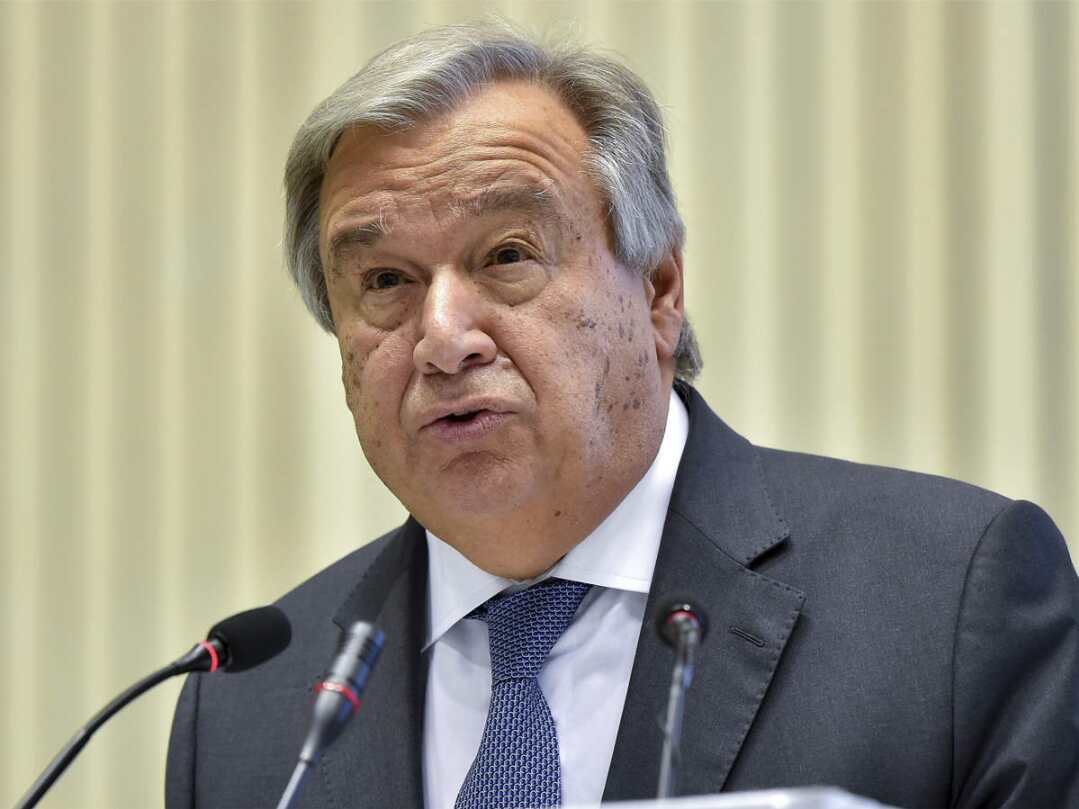No time to waste

At a recent high-level UN conference, Secretary-General Antonio Guterres warned that the basic living conditions in Afghanistan have taken a turn for the worst in the last month. The poverty rate is soaring, basic public services are barely functioning and hundreds of thousands of Afghans have been left homeless in just the last few months of fighting before the US withdrawal. Worse still, Guterres warned that millions of Afghans could run out of food before the coming winter and that one million children are at risk of starvation and even death should their nutritional needs not be met on an urgent basis. While calling for continued international engagement with the ravaged country, Guterres had expressed some hope with the international community responding to the UN appeal for USD 606 million with pledges equalling USD 1 billion. Still, this amount, even if it does materialise in full, is likely no more than a stop-gap measure to slow down the complete collapse of the Afghan economy and nation. The problem, as reiterated many times, is that Afghanistan was always a nation that was heavily dependent on foreign aid and financing with a majority of public spending being entirely reliant on the international community. With the Taliban facing a crisis of international recognition, all the various sources of funding from the outside have been locked away as nations figure out how to deal with the Taliban being in power. Though the international community is understandably concerned with sending any funds into Taliban-ruled Afghanistan, a few countries have already decided to step forward. Predictably, the Taliban's new 'friends' in Beijing and Moscow are already making pledges of humanitarian aid and development funding for Afghanistan. China recently announced that it would be offering at least USD 31 million worth of emergency aid with Coronavirus vaccines also included as part of the aid package. Pakistan is reportedly in the process of sending medicines and cooking oil to aid the situation. On Monday, Russia's foreign ministry told state media outlets that the country is planning to send out food and medicines to Afghanistan in the coming days. All three nations have called on the international community to step up and roll back sanctions on the Taliban to allow international aid to flow in. China went so far as to suggest that the US and its allies were "duty-bound" to help Afghanistan. Till now, the US and its allies have held back from releasing funds until the Taliban makes stronger pledges on upholding human rights, particularly those of women. Even India, with its history of providing substantial development aid to Afghanistan, has been reluctant to give a concrete commitment of aid to Afghanistan until the situation with the Taliban reaches some kind of conclusion. But the problem with holding back until the Taliban falls in line is two-fold. First, until the unspecified date when the Taliban shows its commitment to upholding human rights, the humanitarian situation in Afghanistan will only continue deteriorating. This will inevitably serve to aggravate a refugee crisis that many believe will equal or surpass the Syrian refugee crisis. Second, delaying further would have the obvious result of driving the Taliban further into the arms of China, Pakistan, etc., as the group leans on the only countries willing to accept its legitimacy at the moment. In a sense, this has already happened with the Taliban recently declaring that China will be its "main development partner" in rebuilding Afghanistan. This relationship may help stabilise the region but will also not lead to geopolitical outcomes that would be seen as favourable by India or the US. In this regard, the way forward is straight and narrow. Not helping Afghanistan in this moment of need would not only be a moralistic failing of the international community but would also be a strategic failure for the US and its allies as they would cede the initiative in shaping the future of Afghanistan to state actors like China and Pakistan. Though there is absolutely a need for ensuring that aid and development funds end up in the hands of those who need them, there is little time to sit around and debate the nuance of how this foreign aid should be sent and distributed. After all, millions are starving as the international community endlessly deliberates over the situation.



